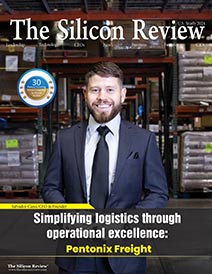>>
Industry>>
Erp>>
The Modernization of ERP withi...The Modernization of ERP within the Cloud
The Silicon Review
18 August, 2016
Enterprise resource planning (ERP) system is the management of the 5Ms which are Money, Material, Manpower, Market and Money and more throughout the enterprise. Until the arrival of cloud technology, ERP was only available on-premise. The on-premise ERP system has been costly, time-consuming and involves lots of administrative activities and heavy maintenance. The invention of cloud computing has totally changed the way business is functioning today. Software-as-a-Service on the cloud platform has simplified technology and reaped quick returns on investment. According to a 2013 survey by McGladery, 54 percent of respondents say changing or upgrading their existing applications is their most time consuming ERP task! With cloud-based ERP deployments, businesses see lower support costs and no maintenance or upgrades for the IT staff to perform.
Fueling ERP in the Cloud
Cloud-based ERP suites are mature offerings that now have many of the same features and functionality as their on-premise counterparts. In addition, the cloud deployment model easily enables the integration of other key technologies like mobility, decision support systems, and collaboration and social systems.
A modern ERP cloud solution is standardized, simple, automated to the core and well connected to various modules. The wide range of the module is built to manage the individual business process and is well connected to project the performance of the particular organization and business at a whole. This enables the organization to completely concentrate on its growth. Modern ERP allows the workforce to collaborate, analyze and work on the move which in turn increases performance with talents. Reduced cost and smarter use of scarce IT resources helps organizations to drive innovations.
Advantages of ERP on the Cloud
The proof of incredible changes to the business functioning through the cloud has attracted more companies to transform to Cloud-based ERP solutions. A 2013 study by Aberdeen Group found that while many businesses are still on the on-premise model, organizations with the capabilities of advance thinking are savoring the benefits of cloud computing. Among the organizations that Aberdeen recognizes best-in-class, 26% are now using cloud-based ERP solutions. The best-in-class organizations moved to cloud-based ERP solutions because it offers benefits for both IT and business. They incorporated cloud-based solutions as part of their strategy to deliver a fast, cost effective way to strengthen core operations.
Adapting to cloud-based ERP model is not just an added advantage to IT or business that saves cost and administration complexities but the implications are way beyond this. The advanced cloud-based applications are consumer-choice user experiences with embedded collaborative capabilities. And in-context analytics to support real-time decision making is a critical activity in today’s fast-paced business environment. A modern cloud platform is agile, reliable, and secure, so that organizations can confidently pursue growth opportunities.
According to Michael Fauscette, Group Vice President, IDC’s Software Business Solutions Group, “A business that wants to stay competitive and get maximum value from its systems would do well to take a look at cloud- based ERP systems and examine how they might fit into a strategy for modernizing IT and maximizing business value and competitive advantage from all enterprise systems.”
Proof of Performance of ERP on the Cloud
Cloud-based technology is growing in full swing wherein service providers and customers are reaping huge benefits out of the technology. Today, under the software-as-a-service platform in the cloud, giant companies like Microsoft, SAP, IBM, Oracle, Salesforce and many others provide competing ERP solutions. Nevertheless, the size, shape or the type of business, the framework of ERP is made to suit the dynamic business and process. This is mainly because of the cloud. Within a short span of time, most businesses in the world have adapted to cloud and have reaped quick returns on investment. Customer testimonials on the official sites of service providers showcase the intensity of cloud modernizing ERP.
Performance of Oracle’s ERP on Cloud
Tower Ventures Pays 750 Vendors in Minutes Instead of Hours, Closes Financial Books in Days, Not Weeks, and Accelerates the Business Cycle
“Bringing in advanced technology, such as Oracle Financials Cloud, will not only make us more profitable, it will accelerate the business cycle. We can create asset portfolios faster, and we have the data that carriers require at our fingertips. We are a much stronger organization with Oracle Financials Cloud.” — Michael McLaughlin, CFO, Tower Ventures LLC
Performance of SAP’s ERP on Cloud
“Thanks to the Player Comparison Tool, developed by SAP Services, fantasy footballers have the real-time information they need to draft a truly awesome team, pick their starters, and make those critical game-day adjustments” says Cory Mummery, senior director for producing NFL digital media. He also explains “Fantasy football gets our fans more attached to the league and drives other areas of our business.” For example, NFL officials cite that fantasy football players consume seven times more content on NFL.com than the non fantasy fan, increasing the value of fantasy football overall.









